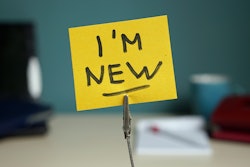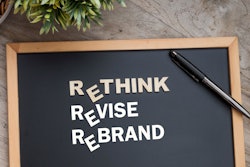
The event industry is undoubtedly booming right now. After two years of pandemic-related layoffs and labor shortages, many live event companies are once again looking for new talent to join their ranks. But with so many people vying for the same jobs, making your resume or interview stand out from the pack is key.
To help, we asked eight event professionals who have been in charge of hiring to tell us what they look for in a new employee. Here are the top attributes they say stand out—and some red flags that can cost someone a job.
Jeremy Hilborn, vice president of talent resourcing and development, EA Collective, Chicago:
What stands out: Hilborn emphasizes the fast-paced nature of the event industry. “Our best candidates, whether full-time or contract, exhibit an impeccable attention to detail, coupled with ultimate flexibility knowing that live events often necessitate the ability to draw on calm, last-minute, flexible solutions,” he explains. “Have a plan A—but be prepared with a plan B, C, and D just in case.”
Red flags: One thing that Hilborn watches for is a pattern of job hopping. “I'm fully aware that our industry experiences turnover, but I greatly value seeing one's company loyalty resulting in employment bouts of longer than one full year,” he advises. “Anything less than that is questionable, and if it looks like they're bouncing around, I think there's something bigger going on.” He also tends to notice if someone’s references are only personal, rather than professional, as well as spelling errors in resumes and cover letters.
Miriam Agrell, chief production officer, Opus Agency, Berkeley, Calif.:
What stands out: To Agrell, it’s all about curiosity and a desire to learn. “So much has changed and will continue to change in our industry that we cannot bring people on board who are not insatiably curious," she says. She also points out the necessity of hard skills, like “experience in broadcast creative and production, experience supporting clients through continued change, and experience getting the most out of every dollar of your budget as prices and expectations go up and the budgets don’t follow suit.”
Beyond that, Agrell is looking for people who have been exposed to many different facets of the planning process. “Projects are more interconnected than ever, and we need staff that have a healthy appreciation of what their collogues are dealing with to bring the best to our clients,” she explains.
Red flags: Agrell keeps an eye out for people who say they “never” want to produce another hybrid or virtual event. “They are here to stay,” she notes. “They don’t need to be your passion or even your area of expertise, but you must be ready to embrace the change.”
Jessica English, event planner, Red Letter Event Planning, Coeur d'Alene, Id.:
What stands out: English looks for a sense of maturity. “When working in an industry that involves giving up weekends—especially in the summer for many places—plus alcohol and parties and unpredictable schedules and needs, we want to feel like the people joining our team have the maturity to handle those things and make commitments,” she points out. “I also personally love when someone is early to an interview or meeting. It may seem small, but it shows you can manage your time and schedule independently."
Red flags: “A red flag for me is when you take too long to email me back, especially if you reached out in the first place,” English notes. “I’ve had prospective hires take weeks to get back to me. A few days is fine, but if you can't be bothered to reply to me in over a week, I don't have a lot of faith that you'll follow through with tasks.”
Mahoganey Jones, founder and CEO, Event Specialists, Toronto:
What stands out: “We've been going through a lot of hiring and I can say for me, I need event experience in the form of doing and not just watching,” Jones says, adding that she’s open to people with experience from other industries. “If I look at my last round of interviews, I have been looking for an eagerness to learn, the ability to think for oneself, tech skills (having used various marketing tools, CRMs, virtual event platforms, and video conferencing tools), and creative thinkers.”
Red flags: Jones looks for people who have truly owned a portion of the planning process. “I understand as much as anyone that any successful event is due to everyone collaborating—but if throughout your interview process you can't reference your contributions to the team, I worry,” she points out.
Lauren Koeppe, CEO and co-founder, Create Hospitality, Los Angeles:
What stands out: Koeppe describes events as a combination of a marathon and a sprint race. “As an event professional working live events, you need to have the mental focus and stamina of a marathon runner, as well as the energy and quick decision-making ability of a sprinter,” she explains. “When we are looking to hire, we need to make sure that our team is well-rounded and that we have a good mix of both marathon runners and sprinters. Our upper-level management team will typically be hired because they possess the ability to perform well in both situations.”
As for the specific qualities she looks for? Koeppe calls out “leadership, organization, creativity, strong multi-tasking skills, the ability to delegate, strategic decision making, the ability to deal with setbacks, solution-oriented, the ability to work long hours, strong communication skills, and hospitality and marketing experience.”
Red flags: “Moody, gets flustered easily, does not like long hours, [or is] anti-social.”
Sara Roberts, event project manager, Amazon Web Services, Houston:
What stands out: “I’ve been part of a hiring team, and one thing that was needed for the position was the ability to be comfortable with ambiguity—someone who could put the puzzle pieces together with only small portions of the overall image,” Roberts explains.
Red flags: She adds, “This position also required someone to be nimble and adjust priorities at a moment’s notice—so if someone said they liked structure in their workday or was hesitant to change, I knew this wasn’t the right position for that person."
Ryan Peddigrew, director of business development, Quest Audio Visual, Toronto:
What stands out: Peddigrew offers a long list of attributes that stand out to him, including organization and communication skills, the ability to network and multitask, and experience with problem solving, negotiation, and budgeting. He also looks for someone with a “client-first approach, a passion for planning, listening skills, and resourcefulness,” he says.
Red flags: As for red flags, Peddigrew calls out issues with timeliness, an obvious lack of research and preparation for an interview, and someone who has applied for multiple roles within the same company. He also keeps an eye out for interviewees who don’t ask any questions, don’t mention teamwork, and show a lack of enthusiasm.
Rick Cosgrove, president, Agency EA, Chicago:
What stands out: Cosgrove looks for evidence of “problem-solving and critical thinking,” he says. “Sharing examples of how you had to solution a complex issue through your own expertise, and the way you leaned on teammates, is what we're consistently looking for in new hires.”



















